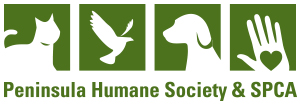Dear Critter Corner: Our dog is a social butterfly and wants to say hi to every person and dog that we pass. If we don’t allow him to say hi, he pulls and is starting to bark and lunge too. When he was younger, we allowed him to say hi, but he is now 9 months and close to 70 lbs. How can we teach him to not pull and bark at the dogs or people on the street? He really is a sweet dog but most people run from him because of this behavior.
Unfortunately, many of us fall into this trap of allowing our young pup to say hi to everyone they encounter while pulling to get there in an effort to help with socializing them. Of course, once they get a little bigger the rules change and the pup has no idea why. They become frustrated because they are held back by the leash and when they can’t get to the desired target, they become more frustrated and that is when the barking and lunging starts to happen.
The easy solution is to not allow this to happen in the first place and to be sure that the pup is practicing polite greetings from the start with both humans and dogs. This should look something like having your pup sit before they get the okay to say hi and making sure that you have asked if it is okay for your pup to say hi. You will also want to work on getting focus on you while you pass dogs and people so that they don’t always get to say hi.
To work on your current situation, you will work with getting a nice solid focus while walking on leash in the presence of other dogs and people. Start at a distance your pup is able to keep focus on you and then start to decrease the distance. In addition, you will want to teach them what you would like them to do instead of their current approach. I like focus followed by offering a sit for people and waiting for an okay with dogs. It would be great to practice with some of your friends with and without dogs so that you can go at your dog’s pace and take the time needed to get up close for the hello.
If you would like some extra help with training your pup, you can schedule a 1:1 Consultation with one of our behaviorists or call our Behavior Helpline at ext. 183.
